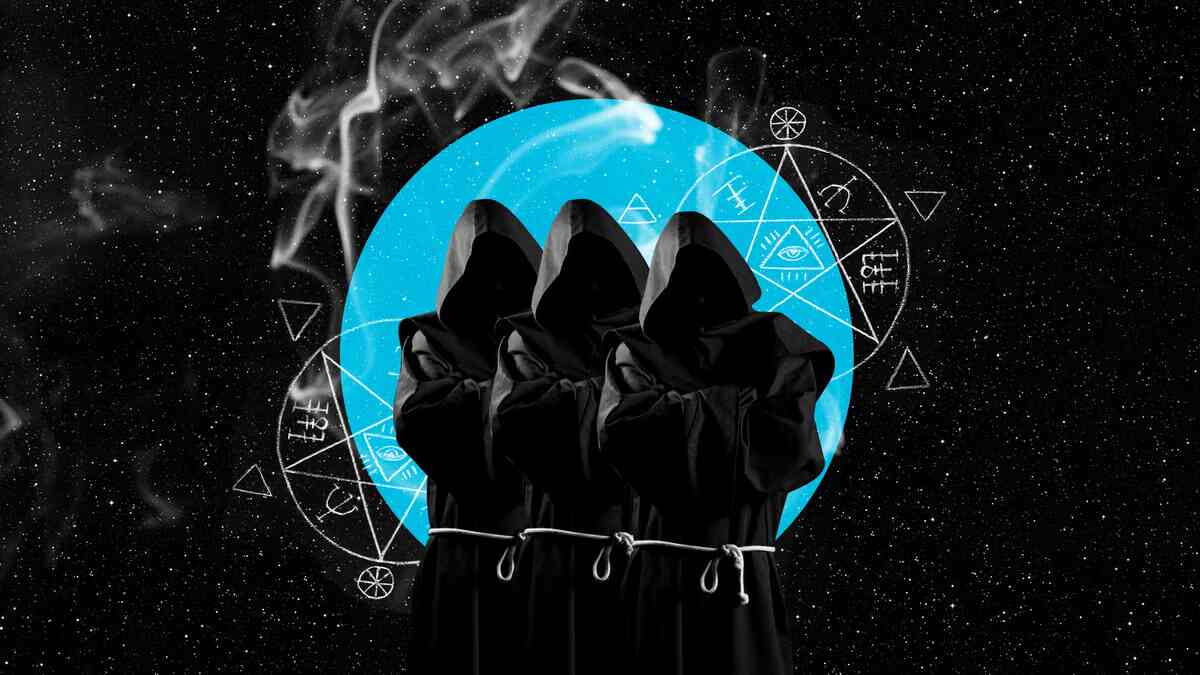Human gathering cult has been a topic of fascination and concern for decades. These groups, often shrouded in mystery and controversy, attract individuals through a combination of charismatic leadership, shared beliefs, and promises of belonging. It is important to understand what a human gathering cult is, its characteristics, and the impact it has on members and society. The purpose of this blog post is to provide a detailed exploration of the concept, providing information about its dynamics, the reasons for its existence, and the challenges it presents.
Table of Contents
ToggleWhat is a Human Gathering Cult?
A human gathering cult is a group characterized by extreme devotion to a particular cause, ideology, or leader. These groups often isolate themselves from mainstream society, thereby fostering a sense of exclusivity and superiority. Members are usually required to strictly adhere to the group’s beliefs and practices, often at the expense of individual freedom and critical thinking.
The term “cult” is often associated with negative connotations, primarily due to the manipulative and controlling nature of many such groups. However, it is important to recognise that not all human gathering cult are harmful. There may be some communities that have strong and shared beliefs and that do not engage in abusive or coercive behaviour.
You may also like Prince Narula Digital Paypal
Defining Characteristics Of Human Gathering Cult
Human gathering cult has several defining characteristics that distinguish them from other types of groups or organizations:
- Authoritarian leadership: A central figure, often charismatic and authoritative, leads the group. This leader typically claims special knowledge or insight and demands unwavering loyalty from followers.
- Exclusive belief system: The group promotes a unique set of beliefs or doctrines that are often presented as the only true path. These beliefs may be religious, spiritual, political, or social in nature.
- Isolation: Cults often encourage members to sever ties with the outside world, including family and friends who do not share the group’s beliefs. This isolation helps maintain control over members and reinforces the group’s ideology.
- Manipulative practices: Techniques such as mind control, ideologization, and psychological manipulation are typically used to maintain control over members and suppress dissent.
- Commitment and Sacrifice: Members are often required to make significant sacrifices, including financial contributions, time, and personal autonomy, to demonstrate their commitment to the group.
- Us vs. Them Mentality: Cults typically promote an adversarial view of the outside world, portraying themselves as the only true community and others as misguided or even evil.
Historical Context of Human Gathering Cult
The concept of human gathering cult is not new. Throughout history, many groups have emerged that display cult-like characteristics. From religious sects of ancient times to modern-day movements, these groups often reflect the cultural and social concerns of their time.
One of the most well-known historical examples is the Peoples Temple, led by Jim Jones. This group, which began as a progressive church advocating racial equality, eventually became a notorious cult that ended in tragedy with the mass suicide of over 900 members in Jonestown, Guyana, in 1978.
Other examples include the Branch Davidians, led by David Koresh, and Heaven’s Gate, a UFO religion that ended in mass suicide in 1997. These groups highlight the potential dangers of human gathering cult, especially when they become isolated and authoritarian.
Visit Baddiehub for more informational blogs.

Why do people join human gathering cult?
Understanding why individuals are attracted to human gathering cult requires examining psychological, social, and cultural factors. People often join cults because they are looking for a sense of meaning, belonging, or purpose. Here are some of the most common reasons:
Search for identity and purpose
Many people join cults during periods of personal crisis or uncertainty. These groups often offer a clear sense of identity and purpose, which can attract individuals who feel lost or directionless. The structured environment of a cult provides a sense of stability and certainty.
Desire for community
Human gathering cult often present themselves as close-knit communities where members can find acceptance and support. This sense of belonging can be incredibly powerful, especially for people who feel alienated or isolated from society.
Charismatic leadership
A charismatic leader can have a profound impact on potential members. Such leaders are often inspiring, confident and able to express a vision that resonates with individuals who are seeking change or fulfillment. The leader’s authority and certainty can provide a sense of security.
Promise of salvation or enlightenment
Cults often promise extraordinary rewards, such as spiritual enlightenment, salvation, or access to hidden truths. These promises can be very compelling, especially for people seeking answers to life’s big questions or who are dissatisfied with mainstream religious or philosophical teachings.
Social influence and peer pressure
Social dynamics within a group can also play an important role in recruitment. Existing members often exert pressure on potential recruits, using techniques such as love-bombing (excessive displays of affection and approval) to make the individual feel valued and special. This can lead to a sense of obligation to join the group.
Manipulation and deception
Some cults use manipulation and deceit to recruit and retain members. This may include lying about the group’s true intentions, concealing the more extreme aspects of its beliefs, or using psychological manipulation to weaken an individual’s resistance.

Psychological Effects Of Human Gathering Cult
The psychological effects of joining and remaining in a human assembly cult can be profound and long-lasting. Members often experience both positive and negative psychological effects depending on the nature of the group and their level of involvement.
Loss of personal autonomy
One of the most significant psychological effects of cult membership is the loss of personal autonomy. Members are often required to delegate their decision-making power to the group leader or leadership structure. This can lead to diminished self-actualization and a reliance on the group for validation and direction.
Cognitive dissonance
Cognitive dissonance occurs when a person holds two or more conflicting beliefs or values. In a cult, members may experience cognitive dissonance as they are forced to reconcile the group’s teachings with their own beliefs or the reality they observe. This can cause significant psychological stress and confusion.
Identity erosion
Over time, cult members may experience an erosion of their personal identity. The group’s ideology and the leader’s instructions often replace personal beliefs and values. This can lead to a decrease in self-esteem, as the member becomes more and more dependent on the group for his or her identity.
Fear and anxiety
Many human gathering cult use fear as a tool to maintain control over members. This can include threats of punishment, excommunication, or even damnation for those who question the group’s teachings or consider leaving the group. This climate of fear can cause chronic anxiety and emotional distress.
Post-traumatic stress
Leaving a cult can be a traumatic experience, especially if the individual has been deeply indoctrinated or has been subjected to abuse. Many former cult members experience symptoms of post-traumatic stress disorder (PTSD), including flashbacks, nightmares, and severe anxiety.
Positive psychological effects
Despite the many negative psychological effects, some individuals report positive experiences within the cult, at least initially. The sense of community, purpose and certainty provided by the group can lead to feelings of happiness, belonging and self-worth. However, these positive effects are often short-lived and are overshadowed by the negative aspects of cult life.
Social and Cultural Impact of Human Gathering Cult
Human Gathering Cult can has a significant impact not only on their members but also on society at large. These groups often challenge social norms and values, leading to conflict, controversy, and in some cases, tragedy.
Disruption of Families and Communities
One of the most immediate social impacts of cults is the disruption of families and communities. Members are often encouraged or even asked to break off relationships with non-believers, including close family members. This can lead to the breakdown of families, the loss of relationships, and a sense of isolation for both the member and their loved ones.
Legal and Ethical Issues
Many Human Gathering Cult operate in a legal gray area, skirting the boundaries of laws and regulations. This can lead to legal battles over issues such as child custody, property rights, and the legality of the group’s practices. In extreme cases, cults may engage in illegal activities such as fraud, abuse, or violence, which can result in criminal prosecution.
Cultural impact
Some cults have widespread cultural influence, influencing public discussion and social attitudes. This can be seen in how some cults have shaped perceptions of religion, spirituality, and personal freedom. In some cases, cults have inspired works of literature, film, and art, which contribute to broader cultural understanding of these phenomena.
Media and public perception
The media plays a significant role in shaping public perception of human gathering cult. High-profile cases of cult-related tragedies, such as the Jonestown massacre or the siege of the Branch Davidian compound in Waco, Texas, have contributed to a largely negative view of these groups. This has led to increased scrutiny and suspicion toward any group perceived as a cult.
Challenges for law enforcement and mental health professionals
Human gathering cult present unique challenges for law enforcement and mental health professionals. The secretive and isolated nature of these groups makes it difficult to investigate allegations of abuse or illegal activity. Mental health professionals may also have difficulty providing effective treatment for former cult members, who often require specialized care to overcome the psychological effects of their experiences.

The Future of Human Gathering Cult
As society continues to evolve, the nature of human gathering cult will continue to change. Advances in technology, changes in social norms, and shifts in cultural values will influence the formation and operation of these groups in the future.
The Role of Technology
Technology is already playing a significant role in the growth of human gathering cult. The Internet and social media have made it easier for cult leaders to recruit followers and communicate with them, often bypassing traditional gatekeepers such as family, friends, and religious institutions. Online communities can serve as a breeding ground for cult-like groups, helping them grow quickly and reach a global audience.
Changing Social Norms
As social norms continue to change, the types of beliefs and practices that attract people to cults will also continue to change. For example, a growing interest in alternative spirituality and wellness practices may give rise to new types of cults that blend traditional religious teachings with modern self-help philosophies.
Increased awareness and education
Greater awareness and education about the dangers of cults can help prevent individuals from becoming victims of these groups. Organizations dedicated to cult awareness and recovery are working to educate the public, provide support to former members, and advocate for stronger legal protections against abusive cult practices.
Legal and regulatory developments
Governments can take a more active role in regulating and monitoring human gathering cult, particularly those that engage in harmful or illegal activities. This could include stricter enforcement of laws related to fraud, abuse, and coercion, as well as the development of new legal frameworks to address the unique challenges posed by these groups.
Conclusion
Human gathering cults are complex and multifaceted phenomena that have been part of human society for centuries. While not all cults are inherently harmful, the potential for abuse and manipulation within these groups is significant. Understanding the characteristics, motivations, and effects of cults is important for both individuals and society as a whole.
By promoting greater awareness and fostering education, we can help protect vulnerable individuals from the dangers of human gathering cult and support those who have been affected by these groups. As we look to the future, it is essential to remain vigilant and proactive in confronting the challenges posed by these mysterious and often disturbing organisations.





2 Responses